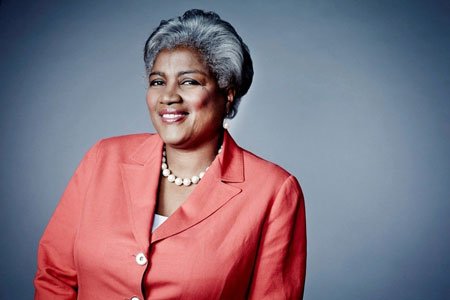(CNN) — I grew up near the same tree-moss-draped area of Louisiana where U.S. Rep. Steve Scalise met with followers of David Duke, the Klu Klux Klan leader who in the ’90s ran for governor and senator in my beloved state.
All my values were forged in Louisiana. Values like family, faith, community and the desire to help others.
I understand the so-called conservative values that Congressman Scalise championed, including a deep animosity to taxes. Still, his decision to seek the support of voters aligned with a white supremacist shows extremely poor judgment.
He already knew where he was on the political spectrum. As Stephanie Grace, a columnist and reporter for the New Orleans’ Times Picyaune and now for the Advocate, says, he once told her he was “like David Duke without the baggage” — that is, without the neo-Nazi views.
Scalise was 36 at the time of the controversial meeting he is now trying to explain. He says he didn’t know anything about the group he was speaking to. But Kenny Knight, the man who invited Scalise to speak, was known to Scalise as Duke’s campaign manager. Knight says he told Scalise they wouldn’t talk about race or the Jews. That should have been a tip-off.
Knight says he didn’t invite Scalise to address the convention of white supremacists. Instead, he asked Scalise to talk to a neighborhood group, the Jefferson Heights Civic Association, composed mostly of elderly citizens.
But Scalise admitted last week that he talked before the European-American Unity Rights Organization, which the Southern Poverty Law Center considers a hate group. It advocates white supremacy and wants everybody who isn’t like its members to leave the country.
Scalise said in an interview last week with NOLA.com that at that stage of his political career, he spoke before any group who asked him. He added he even addressed the League of Women Voters which “is a pretty liberal group.” That’s the group composed of Republicans and Democrats who provide identical questions to each candidate and publish their answers without edits so voters can be informed in a nonpartisan manner.
A number of Republican Party leaders, including House Speaker John Boehner, came to Scalise’s defense. Boehner said Scalise “made an error in judgment, and he was right to acknowledge it was wrong.” There’s a tacit acknowledgment in these defenses that Scalise knew who he was addressing.
It seems there’s a concerted effort to make this a non-scandal. Rep. Cedric Richmond, the lone Louisiana Democrat, defended Scalise as “not having a racist bone in his body.”
I believe that. But it makes Scalise’s appearance much, much worse.
So many politicians are so eager to push their particular ideology — or simply score points — that they don’t consider the larger context. Was Scalise’s anti-tax message so important that it blinded him to the larger value of dignity and equality?
Did Scalise consider who he was representing? It’s a delicate line for politicians. An appearance is an implicit endorsement of acceptable politics. (You don’t have to talk about race or Jews). Our politicians must be held accountable. Our universal values, such as “All men are created equal,” should not be violated in the name of seeking votes.
Millions of fallen soldiers who lie in graveyards here and overseas gave their lives defending the principle that every person is individually endowed by God with human rights, and that it’s the duty of the government to secure these rights. Is it alright to dismiss an appearance before a hate group as simply an error in judgment?
Peter Wehner is a former deputy assistant to President George W. Bush, and was an adviser to Mitt Romney’s presidential campaign. “The party of Lincoln shouldn’t have as its #3 a keynoter at a white supremacist convention,” he said on Twitter.
There is a broader issue here than Scalise and his appearance before a hate group. How much better if our politicians took account of themselves first, rather than acting from a perspective of privilege that they can seek votes where they wish without consequences.
We still have a ways to travel in the 21st century.
Donna Brazile, a CNN contributor and a Democratic strategist, is vice chairwoman for voter registration and participation at the Democratic National Committee. A nationally syndicated columnist, she is an adjunct professor at Georgetown University and author of “Cooking With Grease: Stirring the Pots in America.” The opinions expressed in this commentary are solely those of the author.
